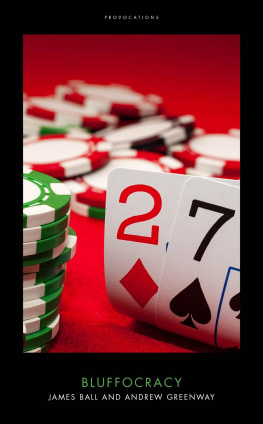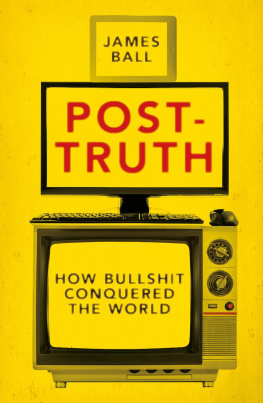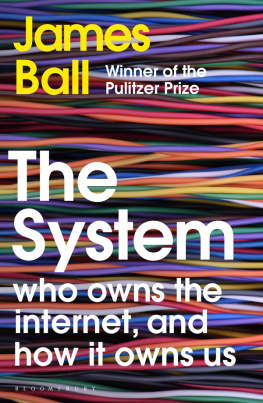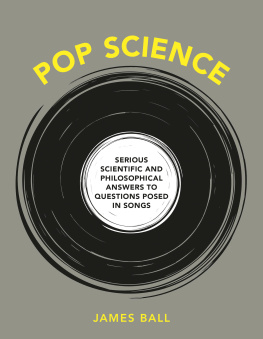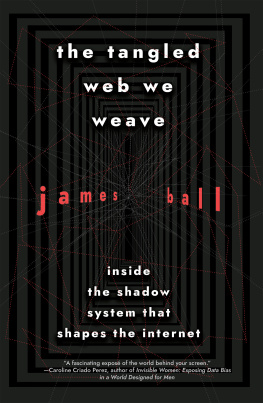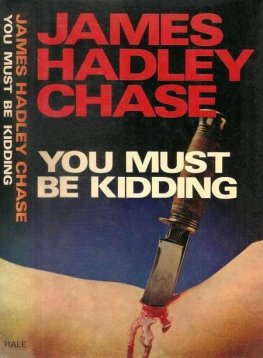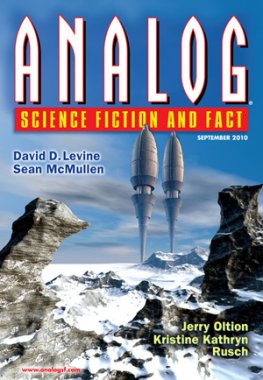James Ball - Bluffocracy
Here you can read online James Ball - Bluffocracy full text of the book (entire story) in english for free. Download pdf and epub, get meaning, cover and reviews about this ebook. year: 2018, publisher: Biteback Publishing, genre: Politics. Description of the work, (preface) as well as reviews are available. Best literature library LitArk.com created for fans of good reading and offers a wide selection of genres:
Romance novel
Science fiction
Adventure
Detective
Science
History
Home and family
Prose
Art
Politics
Computer
Non-fiction
Religion
Business
Children
Humor
Choose a favorite category and find really read worthwhile books. Enjoy immersion in the world of imagination, feel the emotions of the characters or learn something new for yourself, make an fascinating discovery.
- Book:Bluffocracy
- Author:
- Publisher:Biteback Publishing
- Genre:
- Year:2018
- Rating:5 / 5
- Favourites:Add to favourites
- Your mark:
- 100
- 1
- 2
- 3
- 4
- 5
Bluffocracy: summary, description and annotation
We offer to read an annotation, description, summary or preface (depends on what the author of the book "Bluffocracy" wrote himself). If you haven't found the necessary information about the book — write in the comments, we will try to find it.
Bluffocracy — read online for free the complete book (whole text) full work
Below is the text of the book, divided by pages. System saving the place of the last page read, allows you to conveniently read the book "Bluffocracy" online for free, without having to search again every time where you left off. Put a bookmark, and you can go to the page where you finished reading at any time.
Font size:
Interval:
Bookmark:
I TS TWENTY-FIVE PAST nine on Wednesday morning in early December, and a sleepy-looking Brexit Secretary is about to face off with MPs. At stake are the contents of a series of reports whose existence has been disputed for months: about how different Brexit scenarios will affect fifty-eight different industries, a matter of serious policy detail with huge repercussions for the UK economy.
David Davis was before MPs on the Brexit Select Committee, the forum by which ministers are supposed to be held to account for their decisions. But this confrontation, and the months of wrangling that led to it, had virtually nothing to do with the impact of the governments policy.
Instead, for months, Davis, MPs and journalists had wrangled over semantics. A year before, he had assured MPs his department was carrying out fifty-seven sets of analyses on Brexit. Months later, a junior Brexit minister repeated that the government had conducted analysis of over fifty sectors of the economy. By October 2017, Davis had promised MPs that the impact assessments not only existed but went into excruciating detail and said the Prime Minister would know the summary outcomes of them.
But that excruciating detail was apparently not for MPs or the public to see. Instead, a merry dance played out over months of newspaper editorials before the Speaker ordered the release of the documents. For the first, and perhaps only, time, people got very excited about whether or not an impact assessment was the same thing as a sectoral analysis. And when the supposedly detailed documents were finally released, there were just 850 pages to cover all fifty-eight reports around fifteen pages per sector much of it apparently hastily thrown together by civil servants at a level described by one MP as Wikipedia-lite.
Daviss showdown over the year-long wrangle had nothing to do with the contents of the documents, and consequently nothing to do with the long-term effects of one of the biggest decisions any British government has made in decades. Davis made sure of that: he made sure he hadnt read any of the 850 pages before appearing before the committee. For absolute, complete transparency on it, I was provided with a sample of two of the chapters in the week before they were given to the Committee, he told MPs. I did not read them deliberately; I took the view that I wanted to be able to say that I did not read them.
After little more than an hour of uneven and partisan questioning, Davis left the committee, citing another commitment despite having been warned by the Speaker that Parliament should be his top priority. The dnouement of a years wrangling over the impact of Brexit ended with an hours discussion of who read what and when, and whether impact assessments and sectoral analyses are different things. Davis himself left unscathed.
That year-long impact assessment fight is emblematic of three of the institutions that shape British public life. Politics, the civil service and the media are with honourable exceptions run by people who are bluffing, winging it, obsessed with process over substance, and dominated by short-termism.
The tops of these institutions are dominated by men it is still predominantly men whose primary skills are most often talking well, writing well and quickly mastering just enough detail of a brief to get by. We live in a country where George Osborne can become a newspaper editor despite never having worked in news, squeezing it in alongside five other jobs; where a columnist can go from calling a foreign head of state a wanker to being Foreign Secretary in six months; where the minister who holds on to his role for eighteen months has more experience on the job than the supposedly permanent senior civil servants.
These values arent just cultural: theyre baked into how our elites are educated, how career advancement works and how people get noticed. This approach ranges from top-flight entrants to the civil service being required to take on four different roles in two years, to the UK Cabinet needing to be hired from the ranks of MPs, who rarely have specialist experience in the departments they lead.
This book aims to chronicle how Britain became a bluffocracy and what real-world consequences it has for us all, from frustrating scrutiny, to stymieing diversity, to contributing to the short-termism that fuels many of the countrys political failures and scandals.
* * *
The UKs preoccupation with the jack of all trades long predates any 21st-century government it is in many ways an outgrowth of the Victorian concept of the gentleman amateur, the nobleman who can turn his hand with great ability to any one of dozens of fields, whether in public life, the sciences or sport. One of the pinnacles of the concept was Sir Francis Galton a true polymath born to wealth, with more than 300 academic papers to his name. Galton was the discoverer of the concept of correlation, one of the first meteorologists, and the first proponent of the morally dubious concept of eugenics. But most of us are not Galton: we may be good at one or two things, but even then it takes years to become an expert.
Expecting anyone, however smart, to master many different fields is a recipe for failure but it is also the basic requirement for ministers, journalists and senior civil servants. Whatever he may think, Michael Gove is not this generations Galton yet, like many other ministers, he has so far been called upon as an expert in the UKs education system, justice system and, most recently, environmental and rural affairs.
The difficulties of expecting ministers to be the master of so many fields was perhaps best highlighted when Gove appeared before MPs and was asked whether he could manage his stated target. If good requires pupil performance to exceed the national average, and if all schools must be good, how is this mathematically possible? the English graduate was asked at committee in 2012. By getting better all the time, he replied, prompting the question of whether he was better at literacy than numeracy at school. Gove could not recall.
Expecting GCSE-level maths from the Education Secretary should not sound unreasonable, but the British establishment has a long-held suspicion of installing experts at the highest level. Sir Winston Churchill, regarded by many as one of the countrys finest Prime Ministers, famously said that scientists should be on tap, not on top an attitude still built into many institutions to this day, deliberately or otherwise.
The UK is facing a new array of global challenges that rely on specialist knowledge, from the rise of AI, to working out solutions to climate change, to tackling cybercrime and the lurch into the internet era. And yet science and technology remain marginalised in three of the countrys key institutions.
Research by Nesta suggests only 9 per cent of candidates at the 2017 general election had degrees in science or technology. Around 60 per cent of applicants to the civil service had degrees in humanities, social sciences or languages versus less than 15 per cent from a science background. In journalism, the effect is even more stark, where research by the Reuters Institute for the Study of Journalism found that only 3 per cent of journalists said they had a specialism in science or technology. By contrast, 47 per cent said they werent a specialist in anything.
The values of all three institutions tend to reward people willing to change beats and move around, again rewarding generalists over specialists but also encouraging a short-termism in reporting and policy-making alike. In government, this is what encourages ministers and the civil servants who support them to focus on making new policies, knowing they likely wont be around when any consequences come home to roost as the government learned the hard way in the spring of 2018 with the Windrush scandal. Brexit may end up being the biggest Pandoras box of all.
Font size:
Interval:
Bookmark:
Similar books «Bluffocracy»
Look at similar books to Bluffocracy. We have selected literature similar in name and meaning in the hope of providing readers with more options to find new, interesting, not yet read works.
Discussion, reviews of the book Bluffocracy and just readers' own opinions. Leave your comments, write what you think about the work, its meaning or the main characters. Specify what exactly you liked and what you didn't like, and why you think so.

